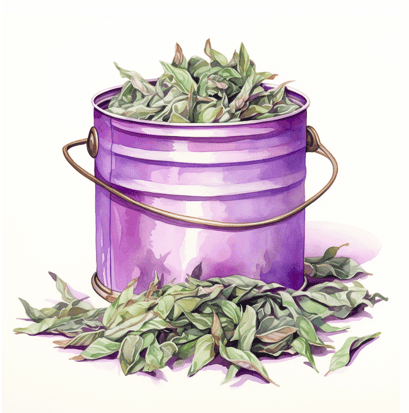
Knowing how long do tea leaves last can be the key to maintaining the flavour and health benefits of your favourite brews. If tea isn’t stored properly, it can lose those soothing qualities faster than you’d think, but don’t worry—I’ll show you how to keep your tea perfect for every relaxing moment.
Hi, I’m Hazel
I gave up on skincare after years of issues with acne and sensitive skin.
But after going plant-based, my skin cleared up and even started to glow. Now I help women reveal their natural beauty with simple, delicious plant-based food.
I also used to be a nurse, and love nerding out on nutritional science (high-quality science, that is).

As usual, this post is based on the strongest nutritional evidence I could find with a focus on the simplest, most delicious foods
…because who has time to waste on anything less?
The quick version:
Tea leaves can last from 6 months to 2 years; black, oolong, and pu-erh teas generally offer the longest shelf life, while white and herbal teas may have a shorter lifespan. Proper storage in airtight containers in cool, dark places significantly enhances their longevity and preserves beneficial antioxidants.
Can Tea Expire?
While tea doesn’t “expire” in the traditional sense of becoming unsafe to consume, its flavour and potency can degrade over time, affecting its taste and health benefits. Properly understanding when tea has declined in quality is crucial for making the most of each brew.
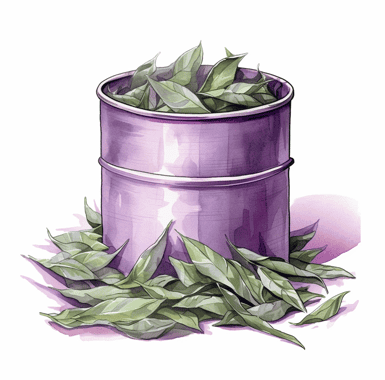
When Is Tea Past Its Prime?
Tea can remain safe to drink for a long time if storage conditions are optimal, but its quality will diminish.
If your tea has been stored for years beyond the recommended shelf life for its type, it may start to taste bland and lose its aromatic qualities.
This loss in flavour and effectiveness means it won’t deliver the intended experience or benefits, such as antioxidants in green tea or calming effects in herbal varieties.
Impact of Ageing on Different Tea Types
Each tea type has its own timeline before it starts to lose its peak freshness.
Aged tea, like some black or pu-erh teas, can improve with time under the right conditions, but even these teas have a limit to how much ageing benefits them.
For most teas, especially delicate types like green and white teas, prolonged storage beyond a couple of years can lead to a significant decline in quality.
When to Ditch Your Tea
It’s essential to recognise when your tea has lost its charm and it’s time to replace with a fresh batch.
Here’s how to tell the moment, so that you always enjoy the best quality and flavour.
Signs of Deterioration
Look for clear indicators that your tea has gone past its prime:
- Loss of aroma: If opening the container doesn’t release the usual delightful fragrance, the essential oils in the tea, which contribute to its flavour and aroma, have likely diminished.
- Faded flavour: When your tea starts to have a stale flavour or has lost its full flavour, it’s a sign that it’s time to toss it.
- Moisture: Wet tea leaves or a musty smell are clear indicators that your tea has gone bad.
- Visual changes: Any signs of moisture, mould, or a significant change in colour are immediate reasons to discard the tea, as these changes can affect not just the taste but also the safety of the tea.
Also check out:
How Detox Tea Endangers Your Liver, and Your Life
The Shelf Life of Tea
Exploring how long your favourite teas can stay fresh is key to enjoying every cup.
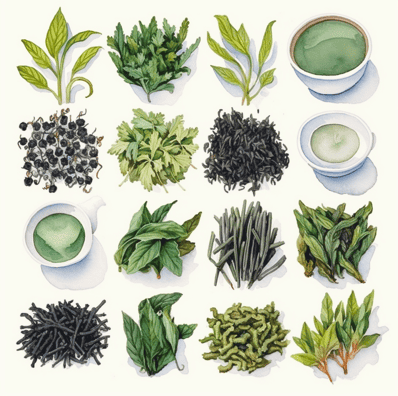
Here’s what you need to know for each type of tea to keep them at their best.
Black Teas: Robust and Long-Lasting
Black teas are known for their strong flavours and longer shelf life, often lasting up to two years when stored correctly. This durability makes them a staple in any tea lover’s collection.
Oolong Teas: Delicately Diverse
Oolong teas, with their unique fermentation process, also boast a long shelf life. These teas can keep their complex flavour of loose leaf tea fresh for up to two years, offering a perfect balance between black and green teas.
Pu-erh Teas: Ageing with Grace
Known for improving with age, raw pu’erh and its fermented counterpart can last for many years. These teas develop richer flavours and deeper complexity over time, much like a fine wine.
White Tea: Fragile yet Flavourful
White teas are the most delicate, with a shorter shelf life of about a year.
Their subtle flavours are best preserved by careful storage away from light and heat.
Herbal Tea: Sensitive to Time
Herbal teas, which often include a mix of dried flowers, fruits, and herbs, typically have a shorter shelf life—usually around 6 to 12 months. Their organic components are more susceptible to degradation.
Green Teas: Freshness Matters
Especially sensitive are Japanese green teas, which ideally should be consumed within six months to maintain their vibrant flavour and health benefits.
Loose Leaf vs. Tea Bag
Loose-leaf tea generally offers a longer shelf life compared to tea bags due to the minimal processing of the leaves. This form allows the tea to retain its flavour and essential oils more effectively, making it a preferred choice for those seeking quality and longevity.
Tea bags, while convenient, often contain smaller pieces of leaves and fillers, which can speed up the loss of flavour and freshness.
Mastering Shelf Life
Proper storage is crucial for extending your tea’s freshness and effectiveness in your wellness routine. Let’s ensure your tea gives you the most beauty and health benefits.
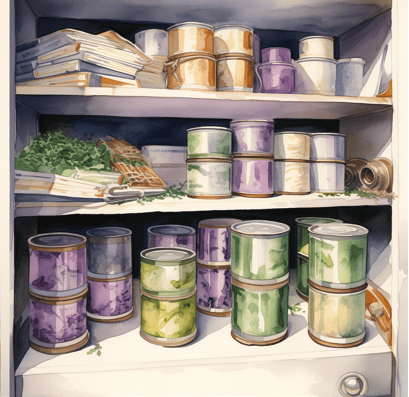
Choosing the Right Containers
Keep your teas in an airtight container to shield them from air and moisture, which can degrade their quality.
The Role of Proper Environment
Storing your tea in a dry place with controlled room temperature is ideal.
A dark place away from high temperatures and direct sunlight also helps maintain their vibrant flavour and healthful properties.
This environment prevents bacterial growth and preserves the original flavour of your tea, ensuring each cup is as fresh as the first.
Freshness Tips for Tea Lovers
Keeping your tea fresh is not just about great taste—it’s about maximising the health benefits for your beauty regimen too.
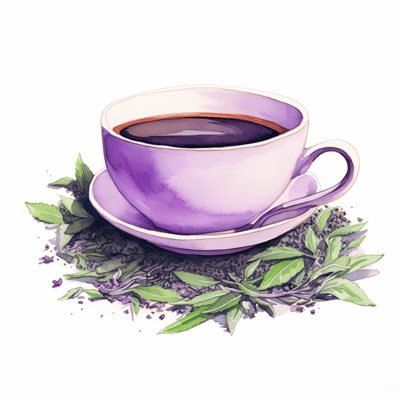
Here’s how to keep your tea as fresh and effective as possible.
Buy in Small Quantities
For the freshest experience, purchase tea in small quantities. This prevents having large amounts of tea that may go stale before you can use them. Plus, it allows you to try more varieties without wasting any.
Check Dates and Rotate Stock
Always check the tea expiration date when buying and use older teas first to avoid having to dispose of expired tea.
This “first in, first out” approach is a great way to keep your tea collection fresh.
Loose Leaf vs. Tea Bags and Blends
Understanding the difference between loose tea and tea bags, as well as various blends, can help you choose the best option for flavour and health benefits.
Quality and Flavour
Loose-leaf tea offers a superior flavour and health profile as it allows the leaves to expand fully, releasing more antioxidants and flavours—perfect for your skin and overall health.
Tea bags often contain smaller pieces of leaves, which can result in a quicker but less robust flavour.
Blends for Every Mood
Tea blends combine different types of leaves to create unique flavours and health benefits.
Whether you need a calming herbal mixture or a robust black tea blend, there’s something for every part of your day and mood.
How long do tea leaves last?
By now, you should have a solid understanding of how long tea leaves last and how best to store them to maximise their life span. With these tips, your tea can remain a fresh and vital part of your health and beauty routine, ensuring you always have a delicious and beneficial cup at hand.
References
Most references below will link to the original peer-reviewed study itself. However, sometimes I will link to a video over at NutritionFacts.org instead, which is by far the single best resource of brutally transparent nutritional evidence you will ever see. Dr Greger tells a great story about the realities of the science and if I think you will benefit more from one of his videos, the link will take you there instead.
Happy nerding!